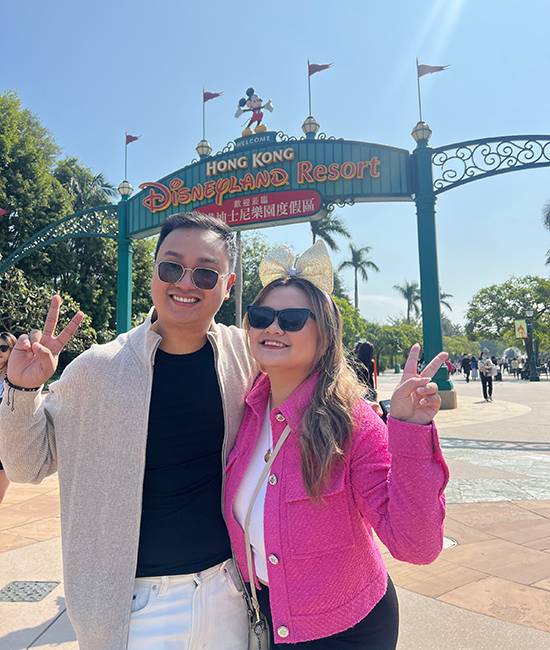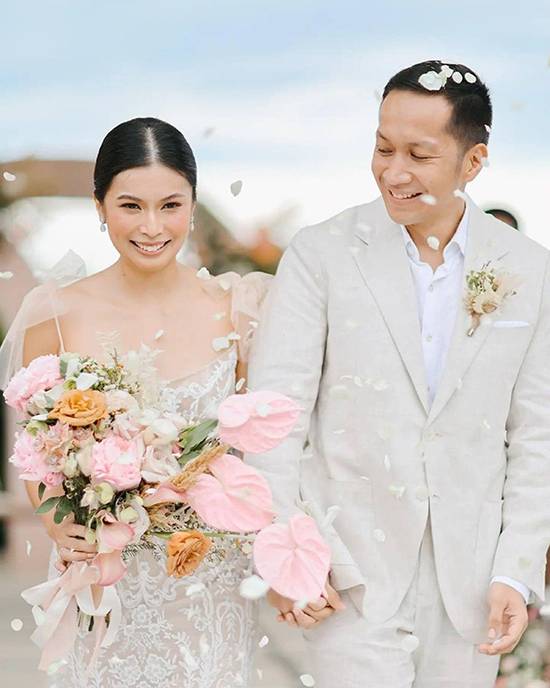Lover vs. Ledger: Mastering money talk in relationships
A P299 engagement ring has sparked a viral debate. Here is some context: an anonymous woman airs on social media her disappointment in her partner’s choice of a budget ring after eight years. Opinions are split on social media: is love really priceless, or do our financial gestures reflect deeper sentiments? More importantly, how should couples navigate the sensitive topic of money?
Seeking clarity, I spoke to three voices in personal finance: Yani Moya, Mariel Bitanga Kintanar, and Rose Fres Fausto. Each brings a unique perspective on best practices for financial conversations at different stages of relationships. As Valentine’s Day approaches, a time often marked by grand gestures, their expert advice is more timely than ever. Before you splurge on Valentine’s Day, maybe consider their advice.
In the dating stage
The love story of Yani Moya and Alec Cuenca, both coaches and podcasters (“The School of Bliss” and “Small Talk!” podcasts, respectively), offers a glimpse into laying it all out from the beginning. They’ve been dating for over a year, yet they’ve developed solid foundations on money rather than skirting topics that many people find somewhat awkward.

Their approach is rooted in monthly relationship check-ins, beyond mere number-crunching. “One habit we have, no matter how small the money coming in, whether it be P1,000 (or more), is that we make sure we transfer it automatically to our savings account,” Moya shares.
These discussions aren’t just about financial health and nurturing the relationship. Cuenca adds, “We ask questions like: How have I hurt you? What did we fight about? And how can we fight better? How was your mental health?”
They also believe in leveraging each other’s strengths for collective financial success. Cuenca describes their dynamic: “Hindi pa naman kami kasal, so we manage finances separately. But it was just so stressful for me. Yet it was easy for her to put everything in Excel and etc. So I requested last month if she could handle my finances as well.”
Transparency has been a cornerstone of their relationship. Cuenca was initially open about his financial position, which was a concern for Moya. “I wasn’t in a very good financial position when courting her. Alam ko that hindi ko afford magka-girlfriend. But I also had my game plan regarding my finances,” Cuenca reflects.
Moya adds, “It was a big block for me. I was a financial coach. How could I date someone broke?”
After a few months, she observed that he had good character: “No matter how small or big, he always paid his debt first. And that, to me, showed that he was responsible.”
Love grows where financial understanding and open communication thrive.
Together, they emphasize the importance of setting shared goals and determining non-negotiables. Moya notes, “At the onset, non-negotiable for me was food. We’re okay to save for other things except food.” She adds, “Meron rin akong financial forecast where we plan for all trips, cleaning expenses, car insurance, etc. We want to get married in the next (few) years. Before we start a family, we want to enjoy ourselves first.”
This approach to finances reflects their commitment to managing money and building a life together where both partners feel valued and understood.
In the newlywed stage
Mariel Bitanga Kintanar, the founder of Simply Finance Philippines (a platform that empowers young Filipina women to handle their personal finance), shares a glimpse into managing finances in marriage. Over a year into marriage, she stresses the importance of communication and shared financial goals.
Kintanar’s take on merging different financial habits with her partner is straightforward. “I was more spoiled, into instant gratification, while he was about delayed gratification. But our common goals and commitment to each other in terms of money bridge our different habits.” This approach underlines the power of common goals in bridging financial differences.

Her emphasis on early and frank financial conversations is a vital piece of advice for couples. “When we got engaged and bought property together, real money conversations started. We discovered each other’s upbringing around money, goals, and how we’d handle expenses and retirement plans.”
These conversations are crucial in setting a strong financial foundation for the future. She adds, “I now meet many couples that don’t even talk about money before getting married. And they just wing it.” Her hot tip: Never assume.
Kintanar also talks about the continuous journey of financial learning within a relationship. “It’s a lot of learning. It’s nice to have an accountability buddy. If you’re straying away from your plan or your commitment, someone will call you out on it in a good way.”
There’s one trend she’s been noticing with the clients she works with in her financial coaching business: “I see more women taking on an equal or a bigger role in handling finances. I’ve also dealt with some clients where the man stays at home to take care of the kids. And the woman is the one bringing home the bacon.”
In a long-term marriage
Rose Fres Fausto, widely recognized as FQ Mom from her podcasts, articles, and books, offers a transparent look at managing money in marriages that are in the long-term stages. Married since August 1989, she harnesses her extensive experience and deep understanding of financial intelligence quotient (FQ) to mentor others on their financial journey.

Fausto’s approach to finances in marriage is both practical and insightful. In her marriage, she shares that they are romantic, especially during anniversaries and day-to-day. But one thing they talk about every year is Asset Allocation and Balance Sheets. This is key to a loving and long-term relationship.
Asset allocation is about finding the right mix of investments to balance risks and rewards, which is crucial for long-term financial stability as a couple. Meanwhile, a balance sheet provides a clear picture of what a couple owns versus what they owe, acting as a roadmap for financial health and planning.
Fausto believes it’s never too late for married people to start discussing finances. “If you haven’t talked about money yet, start now to avoid stress in your marriage.” She also tackles the sensitive topic of financial infidelity, advocating for complete honesty in married couples’ financial affairs.
Fausto’s personal money journey began with a commitment to being vigilant about finances as a full-time mom. This dedication evolved into FQMom.com, where she shares her expertise. “When I decided to be a full-time mom, I became very careful with our money, making our Balance Sheet and Income/Cashflow Statements. This was the seed for FQMom.com,” she shares.
On dealing with financial challenges, such as job loss or career changes, Fausto advises couples to view these situations as temporary and work on them together. “Sort things out, take inventory of your assets, talents, and skills. Dapat magkakampi kayo!” she asserts.
Fausto’s approach to financial management in long-term marriages is grounded in openness, learning together, and adapting to evolving roles. It offers a blueprint for couples to navigate their financial lives together.
The value of money talks in love
The debate over a P299 engagement ring signifies that love and money are deeply intertwined in relationships. From modest gifts to significant financial plans, how we handle money speaks volumes about our values and commitment. Experts Yani Moya, Mariel Bitanga Kintanar, and Rose Fres Fausto all emphasize that it’s never too late to have open financial discussions, regardless of the relationship stage.
So, whether it’s the price of a ring or the details of a balance sheet, remember: money talks can be romantic. The true value in a relationship isn’t measured in currency but in mutual understanding and shared dreams.


